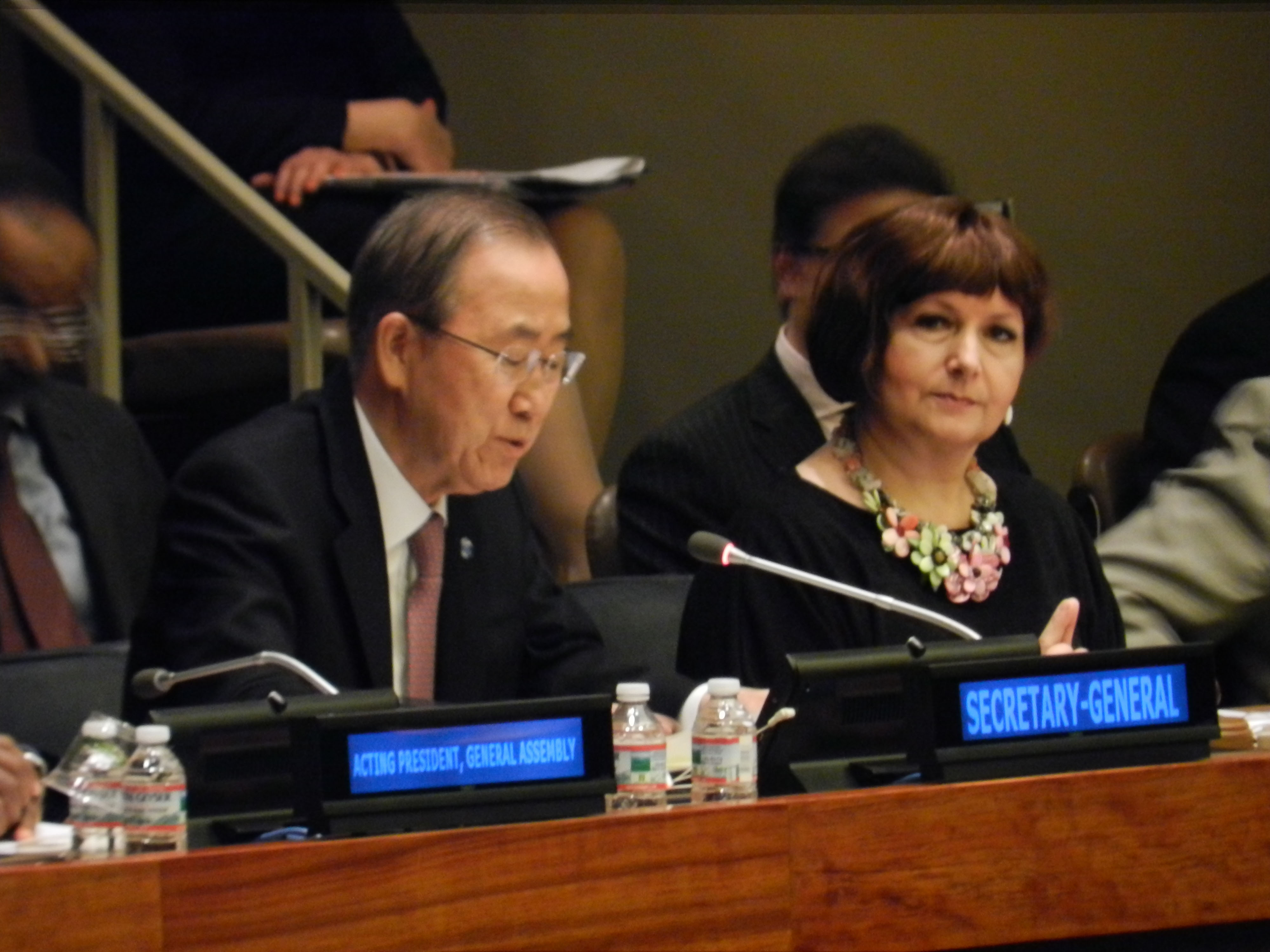In early February, I attended the first week of meetings at the 53rd Commission for Social Development at the UN. It was a rich and wonderful experience as people gathered from around the world to talk about what is needed in the world today. Ban Ki Moon addressed the group by calling for global action: “Social development and social justice are critical for peace in the world. 2015 must be a year of global action. We are the first generation that can eradicate extreme poverty and we are the last generation that can avoid the worst impacts of climate change.”
It was clear at all the meetings that we, as a global community, are struggling to integrate environmental, soc ial and economic concerns in order to create truly sustainable development. But here’s the thing: Speaker after speaker emphasized that we’re not struggling because we don’t know what to do. We know exactly what needs to be done. We’re struggling to find the political will for the deep structural changes that are needed. We have an economy that is devastating the planet even as global labour markets push more and more people to the margins when they lose full-time work and try to get by on a patchwork of precarious employment.
ial and economic concerns in order to create truly sustainable development. But here’s the thing: Speaker after speaker emphasized that we’re not struggling because we don’t know what to do. We know exactly what needs to be done. We’re struggling to find the political will for the deep structural changes that are needed. We have an economy that is devastating the planet even as global labour markets push more and more people to the margins when they lose full-time work and try to get by on a patchwork of precarious employment.
Our government leaders tell us that, if we try to change the economic model in our country to one that is people-centred and planet-sensitive, corporations will move to other countries and we will lose even more jobs. But are we really so helpless? One speaker suggested that we need a coalition of countries that are willing to work together toward a new economic paradigm. “If we can find a ‘coalition of the willing’ to go to war together, how is that we can’t find a coalition of countries that are willing to work toward an economic model that can address issues of poverty and climate change?”
Perhaps this is where we all come in. Like throwing a pebble in a pond, we can stir up the ripples of change by having conversations with family, friends and neighbours about what needs to change and how we can get there. And then, together, we can make it clear to our political representatives that now is the time for change — because the price of inaction (people who are socially and economically excluded, a planet devastated by climate change and environmental damage) is far too high.
Sue Wilson (Canada)

